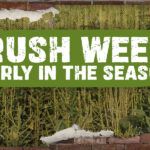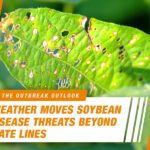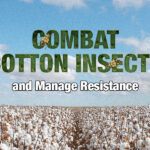Top 10 Ag Careers You’ve Never Heard of (but Should Know About!)
Our industry provides countless opportunities to folks with a passion for feeding the world.

When you think about careers in agriculture, what comes to mind first? Most people would say “a farmer!”, but the industry offers many more opportunities on and off the farm.
A survey released by the National 4-H council confirms that awareness is lacking: Only 36% of students surveyed felt they were familiar with diverse careers in agriculture.
The truth is, agriculture is an ever-growing field with a wide variety of job opportunities that positively impact the economy and environment. If you’re an aspiring innovator and changemaker, agriculture might be in your future! Here are some ag careers that you might not have heard of but are likely to spark your interest.
1. Field Development Scientist:
Field development scientists play a critical role in bringing reliable crop protection products to market. A lot of their time is spent with boots on the ground, putting active ingredients or formulations that look promising in the lab to the test in the field. By giving products their first “real world” test, field development scientists make sure they live up to Syngenta standards outside the lab.
2. Plant Breeder
Ever wonder where your favorite new varieties of fruits and vegetables come from? The answer is simple: plant breeding! Plant breeders are geneticists who develop new varieties that are productive and resilient to environmental challenges like drought, pests and climate change. They use molecular technology to develop varieties that don’t compromise yield for disease or stress tolerance. These advances play a vital role in increasing global food security and meeting consumer demands.
3. Agricultural Educators
Agriculture education is in high-demand, with 92% of University of Minnesota graduates finding immediate career placement within the agricultural education profession. Not only is there a growing need for ag education, but students also demonstrate an increasing interest in the environment, climate and food systems. Agricultural educators bring ag into classrooms across the country, from big-city schools to rural neighborhoods.
4. Plant Biochemist
Similar to plant breeders, plant biochemists play a huge role in improving nutrition and addressing food security challenges. They study chemical reactions in plants to improve quality and overall nutritional value. They can also help improve crop health and growth by studying how changes in internal processes affect photosynthesis and nutrient uptake.
5. Disease Trait Scientist
Crop diseases can directly affect our health and the food we depend on. Disease trait scientists study how certain diseases affect plants and, through various screening trials, how different seed varieties can help provide resistance against those diseases. By using genomic technology, these professionals can help develop more resistant seed varieties.
6. Sustainability Specialist
Sustainability specialists help companies follow sustainable practices related to waste management, greenhouse gas emissions practices and more. Sustainability specialists often make recommendations to the stakeholders at their companies for how to handle certain processes efficiently and safely, keeping our environment clean and healthy.
7. Agriculture Lawyer
Agriculture lawyers do exactly what you would expect them to do: They advise on legal issues that affect agriculture industries. But there are more applications to their role than you might realize. Agricultural lawyers cover everything from farm policies, land use and zoning. Often, they help growers and retailers obtain certain licenses and permits.
8. Demand Planner
A demand planner’s job is to make sure the supply chains can keep up with market demands. In agriculture, this can look like forecasting what crop protection inputs growers and retailers need and supporting new product development and launches. By getting growers what they need, demand planners help secure our food supply.
9. Food Scientist
Which fruits and vegetables are the most nutritious? How can we make processing safer and more efficient? How can we find new ways to add to our food supply? Food scientists answer these questions and more by studying everything from ingredients to production processes. This may not seem like your typical ag career, but food scientists rely on a strong understanding of agriculture. And you can find them working anywhere from the lab to the field.
10. Aerial Applicator
Aerial applicators take pest management to new heights — literally! Aerial applicators take to the skies to apply pesticides more quickly and precisely than your typical ground rig. Modern technology means that aerial applicators are constantly optimizing their applications and making them more accessible to more farmers. Many pilots take pride in their work keeping crops healthy.
3 Min Read
- The agriculture industry is ripe with opportunities on and beyond the farm.
- Only 36% of surveyed students felt familiar with diverse ag careers.
- Anyone with a passion for feeding the world can find a place in agriculture.
More Articles About Community & Culture
3 Min Read


















